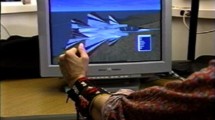Abstract
Modern technological discourse and practices are the outcome of numerous changes in our cultural makeup. The most intriguing question regards the kind of human sensibilities and character traits manifested by technological practices. What, in other words, is the phenomenology of a given practice? In this paper, I argue that technological interventions not only usurp the natural for the sake of the cultural, thereby leaving no room for an independent natural realm; by conquering and taking control of the natural through technology, humans introduce major conceptual change. They break down the conceptual boundaries between nature and culture, causing them to collapse.
Zusammenfassung
Unsere heutigen technischen Praktiken und Redeweisen sind das Ergebnis zahlreicher Veränderungen in unserer kulturellen Ausrichtung. Die entscheidende Frage ist die, nach der Art menschlicher Wahrnehmungsfähigkeiten und Wesenszüge, die sich in technischen Praktiken niederschlagen. Anders ausgedrückt: Was ist die Phänomenologie einer bestimmten Praktik? In diesem Aufsatz vertrete ich die Ansicht, dass technische Eingriffe zugunsten des Menschenwerks nicht nur von der Natur Besitz ergreifen und dadurch der Natur als eigenständigem Reich keinen Raum lassen; durch Eroberung und Übernahme der Natur durch seine Technik bewirkt der Mensch eine große konzeptuelle Veränderung. Er reißt die konzeptuellen Schranken zwischen Natur und Kultur ein und lässt sie zusammenbrechen.
Résumé
Le discours et les pratiques technologiques modernes ont généré de multiples transformations de nos caractéristiques culturelles. La question la plus intéressante concerne le type de sensibilité humaine et de traits de caractères se manifestant par le biais des pratiques technologiques. Autrement dit, quelle est la phénoménologie d’une pratique donnée ? Dans cet article, je soutiens que les interventions technologiques usurpent la nature au profit de la culture, ne laissant par conséquent plus de place à un espace naturel indépendant. En outre, en conquérant et contrôlant la nature grâce à la technologie, les hommes introduisent un changement conceptuel majeur. Ils abattent les frontières conceptuelles entre nature et culture, ce qui provoque leur effondrement.
Similar content being viewed by others
Notes
My line of thought in this paper develops along philosophical streams that are imbued with an anti-realistic flavor. There is no danger of clashing with them, as I do not suggest a realistic philosophical account.
References
Albin R (2004) A chronicle of the decline of rationality: ethics in the practice of journalism. Tel-Aviv, HaKibutz HaMeuchad Publishing (in Hebrew)
Aristotle (1952) Metaphysics, Book 1, Chapter 2, Chicago, William Benton Publisher, Encyclopedia Britannica, Inc, 982b, pp 12–20
Benjamin W (1969) In: Hanna Arendt (ed) Illuminations. Schocken Books, New York
Boring E G (1963) In: Watson RY, Donald T (eds) History, psychology, and science: selected papers. Campbell, New York, Wiley
Heidegger M (1977) “The question concerning technology,” In: The question concerning technology and other essays, New York, Harper Torchbooks, Harper and Row, pp 14–18
Hobbes T (1962) In: Michael Oakeshott (ed) Leviathan, or, The matter, form and power of a commonwealth ecclesiastical and civil, an introduction by Richard S. Peters. Collier Books, New York
Kraus K (1976) “In these great times,” In: Harry Zohn (ed) These great times: a karl kraus reader. Engrenda Press, Montreal, pp 74
Lansana K (1998) The human project and the temptations of science, Value Inquiry Book Series 67 Rodopi Editions
Lurie Y (2000) Cultural beings: reading the philosophers of genesis. Rodopi, Amsterdam pp 29
MacIntyre A (1984) After virtue: a study in moral theory. Univ Notre Dame Press, Indiana
Author information
Authors and Affiliations
Corresponding author
Rights and permissions
About this article
Cite this article
Albin, R. Modern technology as a denaturalizing force. Poiesis Prax 4, 289–302 (2006). https://doi.org/10.1007/s10202-006-0028-1
Published:
Issue Date:
DOI: https://doi.org/10.1007/s10202-006-0028-1




